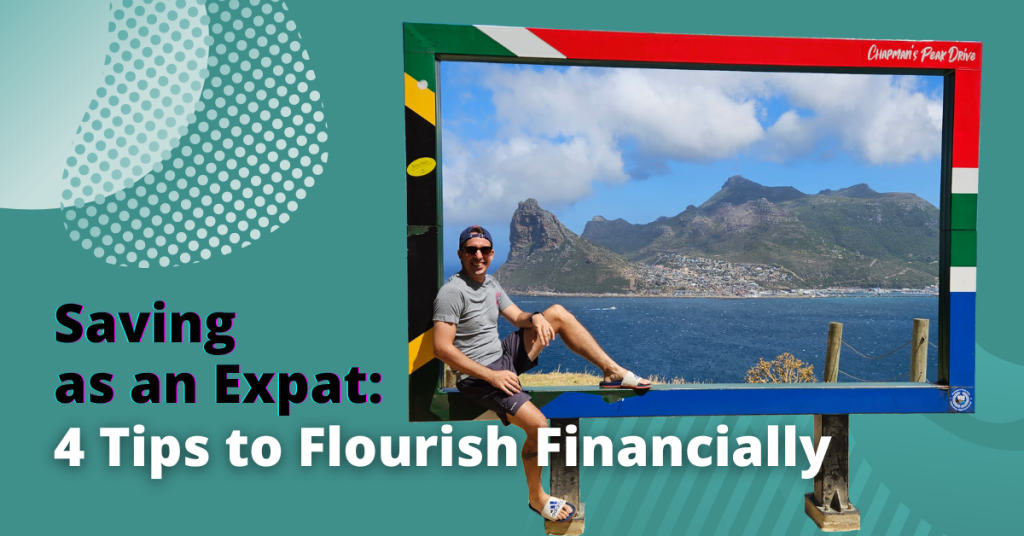Saving as an Expat in Vietnam may be one of the most challenging experiences when managing your finances abroad. Often, it’s not that your salary isn’t enough or that the cost of living is extravagantly high, it’s more that a lot of us incur higher expenses more frequently.
Often, most of us don’t even know where our money is going. We can’t figure out why our expenses are so high or why we don’t save as much as we want. Usually, this is due to us not having a clear financial picture in mind. We need to ask ourselves:
- What do we want to save our money for?
- How much do we need to save and by when do we have to have it saved?
As simple as it sounds, we also don’t save enough simply because we don’t completely understand how to navigate our personal finances. This article will explore some of the most effective ways that you can save as an expat in order to help you build towards retirement.
General Saving Advice for Expats
No matter where you are in the world, saving is a critical component of financial management. But when saving as an expat, you will encounter a few unique situations that makes it a bit trickier. Managing risks such as political, interest rate, regulation and currency risk are all things we have to consider in addition to just minding our spending. It’s not easy on a good day, but what can we do?
The answer: stick to the fundamentals. Here’s some general saving advice for expats to help you navigate these challenges.
- Keep up to date with the news: Sounds boring, but with political and regulatory risk, you need to know what is happening around you. For example, if you live in a volatile country with a volatile currency, you likely want your money saved elsewhere.
- Budget: Most people shy away from budgeting because it can be a lot of work. But there’s no need to count every penny. Start slow and just keep a loose track of your spending so you know where the majority of your money goes.
- Automate savings: By automating your savings you don’t have to deal with your finances every month. Just set a direct deposit into your savings up and off you go.
- Cancel subscriptions: Save money wherever you can by cancelling unnecessary subscriptions.
- Aggressively pay off debt: You may not realise it, but the interest you’re paying on debt adds up faster than you can imagine and more than you’ll know.
4 Tips to Saving as an Expat in Vietnam
Apart from the general savings advice highlighted above, there are a few extra steps you can take to better manage your money, especially as an expat. My top 4 strategies, if they can be called that, are listed below!
- Pay Yourself First: By diverting a specific chunk of your income into savings and investments as soon as it hits your account will guarantee that you save more over time. The financial habit of using what you have left as opposed to saving what you have left, will always be a winner.
- Plan Your Vacations: Having to say this seems silly, but as expats we tend to take many impulsive trips. On the surface they may not look expensive, but quickly add up. Planning your vacations ensures that you save enough money for the trip in advance and will help you avoid putting expenses on a credit card.
- Avoid Lifestyle Creep: Simply put lifestyle creep happens when your living standard improves and your discretionary income increases. Former luxuries like eating out once a week become new necessities and it absolutely cripples your ability to save as an expat. The easiest way to save money is by not spending newfound income.
- Plan Your Savings Around a Base Currency: This is a lesser known but incredibly important saving strategy. Safeguard your savings from currency risk by using your home country’s currency (or another stable currency like USD, GBP, EUR, AUD etc.) as your base currency. All your savings and investments should be in this and the benefits are two-fold:
- You avoid the erosion of your savings from volatile currency fluctuations
- Maintaining a savings account in your home country keeps your money out of arms reach, meaning you won’t dip into it on a jolly
Too much to handle on your own?
Don’t fear, I’m here. Grab me for a free consultation and we’ll have a chat about what you’re struggling with. I’m here to teach you how to manage your money, and I’ve had a 100% success rate with clients so far.
How do Expats Plan for Retirement?
Retirement planning is another crucial aspect of financial management that we have to consider. But one thing is for certain, and that is that we cannot save our way into retirement. By this, I mean that we simply cannot put enough of our income away into our normal savings accounts and hope that it will suffice through retirement. This is because inflation is a killer and will chip away at our savings.
So how do we expats go about saving for retirement?
First and foremost it is essential that we start planning for retirement as early as possible. Even if it seems far away, by implementing small savings and investment strategies sooner rather than later, you’ll find yourself retiring early as opposed to struggling to retire.
Here are a few strategies that I implement when planning for retirement.
High Yield Savings Accounts
- Get the best rates: Speak to your bank to see what interest rates they offer on their high-yield savings account. If they don’t offer good rates you can see what other banks offer.
- Park all your savings in a HYSA: Every dollar that you save that isn’t used in your day-to-day activities should be placed in a high-yield savings account. This way your savings can earn you some money.
- Look for security: Ensure the savings account is insured or guaranteed up to a high limit under government incentives.
Investing in ETFs through online brokerages
- Diversify your portfolio: Invest in exchange-traded funds (ETFs) to keep investment costs to a minimum while providing immediate diversification.
- Consider low-cost brokerages: Choose a brokerage with low fees, good customer service, and a robust trading platform. Look at online reviews before diving in.
- Avoid ‘independent’ financial advisors (IFAs): Be aware of IFAs that try to sell you investment products. High management fees and hidden costs will always kill your investment returns.
Effective Budgeting
- Track your spending: It seems simple, but track your spending. Even if you only roughly track your expenses, you’ll be surprised to find out where your money goes!
- Set savings goals: Don’t just spend, set savings goals. Want a new laptop worth $2,000? Save $400 a month for 5 months then buy it. Removing your emotions from spending is a huge step towards financial independence.
- Reduce unnecessary expenses: Obvious, but necessary. Aside from increasing your income, cutting back on spending is the fastest way to save as an expat. Say no every once and a while to that expensive Sunday brunch and free-flow. Just cause it’s a great deal, doesn’t mean it’s necessary!
Additional Tips
- Stay Informed: Keep up with the latest financial news and regulations in both your current country of residence and your home country. Keep your money wherever it’s most safe.
- Financial Planner: Avoid ‘independent’ financial advisors but consider fee-only financial planners. They are becoming the new norm and unlike IFAs they definitely have your best interest at heart.
- Emergency Fund: Always have an accessible emergency fund that covers at least 6 months of living expenses. Anything less may not be enough considering our foreign living arrangements.
How much money do I need to save as an expat?
If you’re wondering how much you need to save or should be saving as an expat, the answer will always be: it depends. How much you need to save will depend on your current financial situation and your future obligations. If you want to know how much you should save, then you have to consider your intermediate and long-term goals.
For example:
If you don’t have any savings or find yourself living paycheck to paycheck, then you need to try to save up an emergency fund. I know it won’t be easy, especially if you’re carrying debt, but you want to try to cut as much of your spending as possible in order to build up an emergency buffer to protect you from any unexpected events.
Albeit a little outdated, Dave Ramsey’s 7 Baby Steps is a decent strategy to start building your savings.
If you’re wondering how much you should be saving as an expat, then you have to figure out your financial goals and work backwards from there. For example, if you want to buy a house in 5 years worth $400,000 and need a 10% deposit to secure a mortgage, then you should save $667 per month.
Speak to a Financial Planner
If managing your finances still seems overwhelming, consider speaking to a financial planner. They can provide personalised advice, take into account your specific circumstances and teach you how to hit your financial goals.
Mastering Your Finances Abroad as an Expat
Mastering your finances abroad may seem like a daunting task, but with the right knowledge and strategies, it’s entirely achievable. Whether you’re saving as an expat in Vietnam or any other part of the world, the advice outlined throughout this article should help you get started when navigating your finances.
Remember, the key to saving is to plan, budget, and invest. In doing so, you will not only secure your financial future but also make the most of your expat life.


